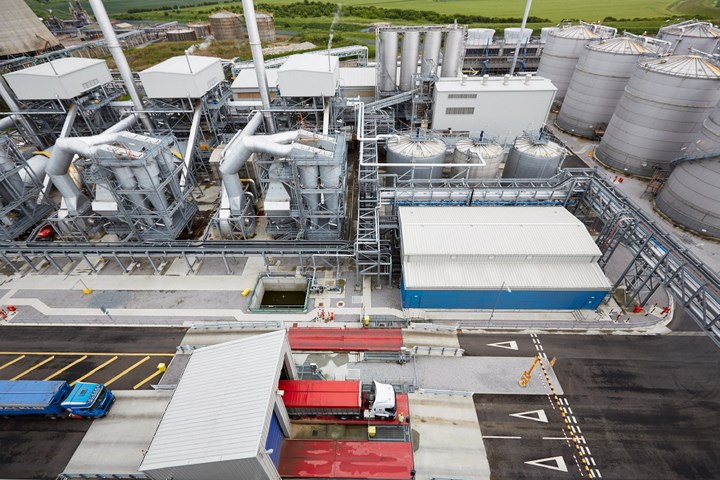Reopening of UK bioethanol plant could lead to decarbonisation of transport

VIVERGO, the UK’s largest bioethanol plant, has reopened after a four-month shutdown period. However, it has warned that government action is urgently needed to secure the future of renewable fuels and pave the way for the decarbonisation of transport.
The Vivergo plant shut down in December 2017 due to falling bioethanol prices, along with inaction from the government on the roll-out of E10 fuel – a blend of petrol with 10% renewable bioethanol. Vivergo was producing 420m L/y of bioethanol and using 1.1m t of feed wheat sourced from 900 local farms. Many farms in the region were affected by the shutdown.
In March the UK government passed legislation on the Renewable Transport Fuel Obligation (RTFO), which comes into effect later this month. This aims to increase the use of renewable fuels for transport from 4.75% to 9.75% by 2020.
Currently all petrol in the UK contains 5% bioethanol fuel, known as E5, and the bioethanol industry is calling on the government to introduce E10 fuel by the end of the year, as it is the fastest and most cost-effective way to decarbonise transport. E10 is already in use across North America, Europe, and Australasia and introducing it in the UK would provide an immediate impact on carbon emissions, equivalent to taking 700,000 cars off the road.
Mark Chesworth, managing director of Vivergo Fuels, said:
“We are pleased to see the RTFO pass through Parliament. This step, combined with the completion of maintenance work, has prompted us to recommence production after being offline over the winter period. However, there is much still to do if we are to sustain production and maintain this significant industry in the UK.”
Recent Editions
Catch up on the latest news, views and jobs from The Chemical Engineer. Below are the four latest issues. View a wider selection of the archive from within the Magazine section of this site.




